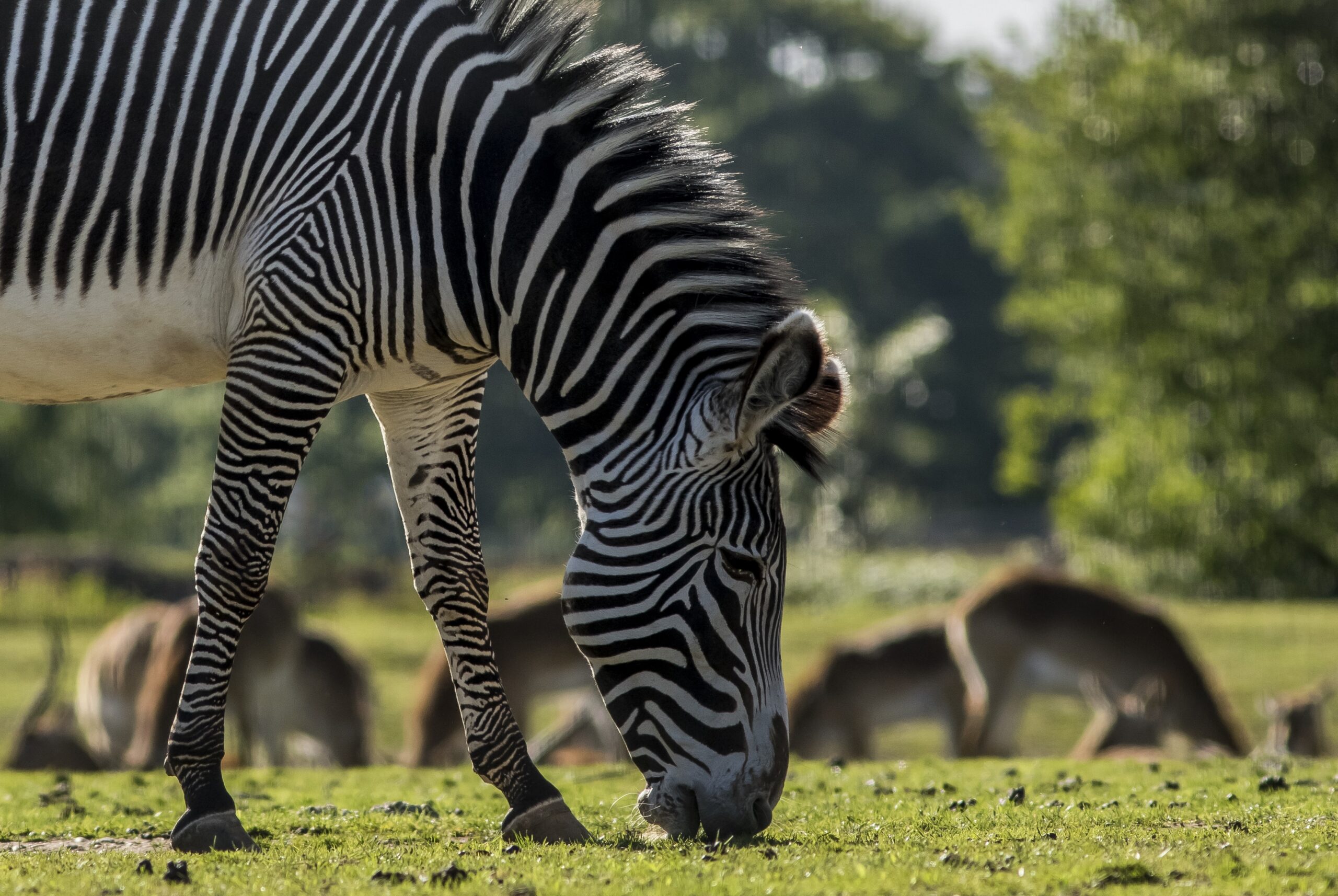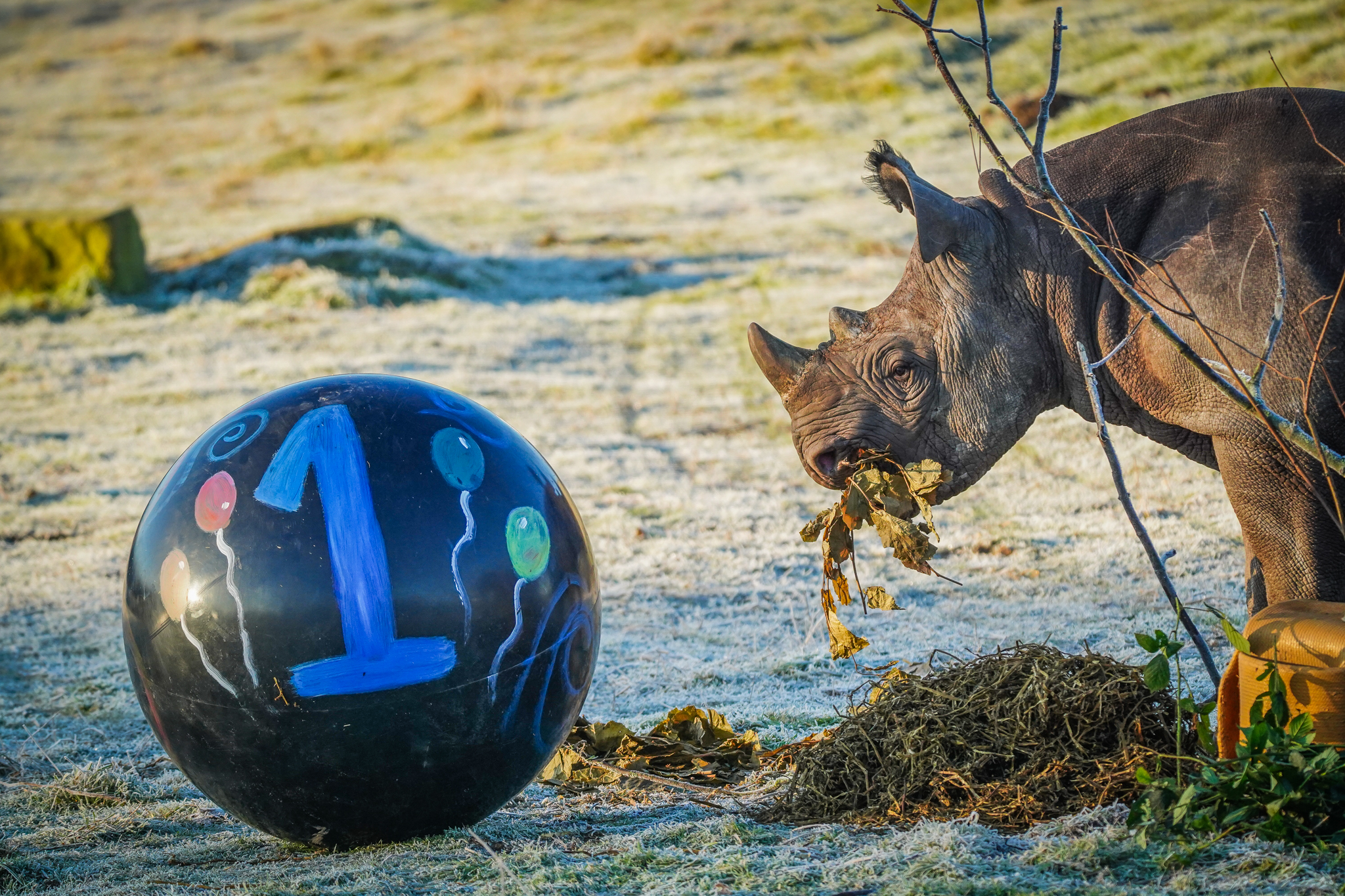This Polar Bear Week, Yorkshire Wildlife Park’s polar bears have been the focus of attention for cameras again – but this time they were helping wildlife research.
The thermal outlines of park favourites Victor, Pixel, Nissan and Nobby were captured by a series of specialist lenses in a project that could save polar bears when they come into contact with humans.
Their heat readings will form the basis of new technology that could provide an early warning systems at dumps or the outskirts of towns that attract hungry bears.
Anne Dangerfield, a geo-scientist with the Arribada Initiative which specialises in accessible conservation technology, spent three days at the award-winning park testing different sensors to identify key heat signatures.
Polar bears are difficult to profile with conventional thermal imaging as they are so well insulated that it is hard to differentiate them from the ground.
The project, funded by the WWF as part of its Human-Wildlife Conflict Tech Challenge, aims to create technology that can alert a community when a polar is nearby and minimise the risk of it surprising people.
“An algorithm will be trained to recognise a polar bear from other animals or objects and send an alert to the community, informing them a polar bear is present at a certain location,” said Anne, project manager for Arribada’s thermal and optical imaging projects.
“We hope this system will decrease the number of polar bears and people killed in human-wildlife conflict. Being alerted to the presence of a polar bear will reduce the number of times community members are surprised and unprepared to meet a polar bear, which can result in the bear or person being killed.”
Data taken at Yorkshire Wildlife Park will be evaluated and used to train a computer algorithm that could generate a low-cost alert system.
“We saw at YWP that at closer distances (less than 10 meters) it is possible for a person to identify a polar bear by its thermal image, especially if the bear is walking or moving around,” she added. “Because our system is designed to be used in smaller community areas polar bears visit, such as dump sites, the cameras could be set up to minimise the distance between them and entering polar bears.”
Community conflict
Disappearing sea ice and vastly reduced hunting grounds are driving polar bears to seek food in villages and towns placing them in potential conflict with communities.
“Technology has the ability to change, improve and conserve our world, but too often it is not available to people and communities who need it most,” said Anne. “Our idea is to use thermal sensors to create an affordable, automated early warning system to alert communities to the presence of a dangerous animal.
The park’s four bears live on the ten-acre Project Polar reserve and are part of an international programme to preserve the species that is suffering a dramatic decline in numbers.
Polar Bear Week 2018
YWP is celebrating its Polar Bear Week, running from November 4-10, which devotes a period of time to polar bears and draws attention to the challenges they face in the wild.
This years’ Polar Bear Week theme is citizen engagement and the park will promote a series of daily actions to leverage people’s power as citizens to help save the sea ice that polar bears desperately depend on.
Bear Necessities Assembly
A new initiative at the park this winter is Yorkshire Wildlife Park’s Bear Necessities Assembly, aimed at Doncaster schools, which introduces pupils to polar bears and what they can do to minimise the threats they face in the wild.
The Yorkshire Wildlife Park education team will run the sessions to raise awareness for key stage one and two schoolchildren until February 2019.
At the end of each session, donations are collected for the WildLife Foundation. You can make your own donation today by clicking the button below.











